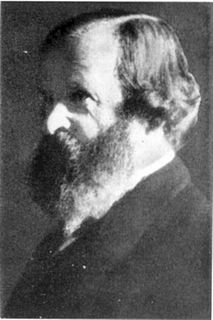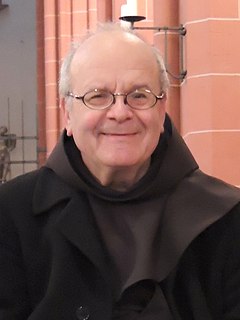Related Research Articles

Günther Johannes Jauch is a German television presenter, television producer, and journalist.

St. Boniface's Abbey is a Benedictine monastery in Maxvorstadt, Munich, Bavaria, Germany. It was founded in 1835 by King Ludwig I of Bavaria, as a part of his efforts to reanimate the country's spiritual life by the restoration of the monasteries destroyed during the secularisation of the early 19th century.

The Augsburger Puppenkiste is a marionette theater in Augsburg, Germany.
Ralph Tegtmeier, also known as Frater V∴D∴ and Frater U∴D∴, is a German occultist, a longtime member of the Fraternitas Saturni, and co-founder of the Illuminates of Thanateros.

Hugo Loetscher was a Swiss writer and essayist.

The Reichs-Rundfunk-Gesellschaft was a national network of German regional public radio and television broadcasting companies active from 1925 until 1945. RRG's broadcasts were receivable in all parts of Germany and were used extensively for Nazi propaganda after 1933.
Franz Kelch was a German bass-baritone lied and oratorio singer. His discography includes works of Johann Sebastian Bach, Dieterich Buxtehude, George Frideric Handel, and Claudio Monteverdi.
Hans Stadlmair was an Austrian conductor and composer. He conducted the Münchener Kammerorchester for almost four decades. He conducted more than 6000 concerts, many in collaboration with the Bayerischer Rundfunk, including premieres. His compositions include works of all genres except opera. His Miró, an Entrada for orchestra, premiered at the Gasteig in Munich in 2011, with Christian Thielemann conducting the Münchner Philharmoniker.

Eugen Oswald, was a German journalist, translator, teacher and philologist who participated in the German revolutions of 1848–49.
Alabama-Halle was a concert and theatre venue in Munich, Germany, which was also used to broadcast the television programme Live aus dem Alabama. It was originally part of a military depot.
Fred Bertelmann was a German singer and actor.
Alfons “Ali” Mitgutsch was a German author of picture books and a professional advertising Illustrator. He was known as the father of the Wimmelbilder books.

Helmut Alfons Schlegel is a German Franciscan, Catholic priest, meditation instructor, author, librettist and songwriter. He is known for writing new spiritual songs, set to music by various composers.

Memoirs of a Good-for-Nothing is a novella by Joseph von Eichendorff. Completed in 1823, it was first printed in 1826. The work is regarded as a pinnacle of musical prose. Eichendorff created an open form with epic and lyrical elements, incorporating several poems and songs in the text. It was first published in English in 1866.
Sabine Doering-Manteuffel is a German ethnologist. On 1 October 2011 she became the first woman to accept the appointment as president of the University of Augsburg. She thereby became the first president/rector of a university in Bavaria.
Jürgen Kesting is a German journalist, music critic and author.
Wilfried Hiller is a German composer. He became known above all for his stage works for families, children and young people.
Rudolf Herfurtner is a German writer.

Hans Haid was an Austrian folklorist, mountain farmer and dialect poet.

Ursula März is a German author and literary critic-commentator.
References
- ↑ "Telekolleg MultiMedial | Wissen & Bildung | Bayerischer Rundfunk". Archived from the original on 2003-08-02. Retrieved 2012-12-07.
- ↑ "Bon Courage 1: Eine Sprachkursreise durch Frankreich". 18 December 2020.
- ↑ "Bon Courage 2: Eine Sprachkursreise durch Frankreich". 22 December 2019.
- ↑ "Bon Courage 3: Eine Sprachkursreise durch Frankreich". 22 December 2019.
- ↑ "Telekolleg | BRmedia |".
- ↑ "Bon_Courage_DVD · TV Ablage · Auswahl Sendungen · BRmitschnitt". Archived from the original on 2012-03-05. Retrieved 2012-12-07.